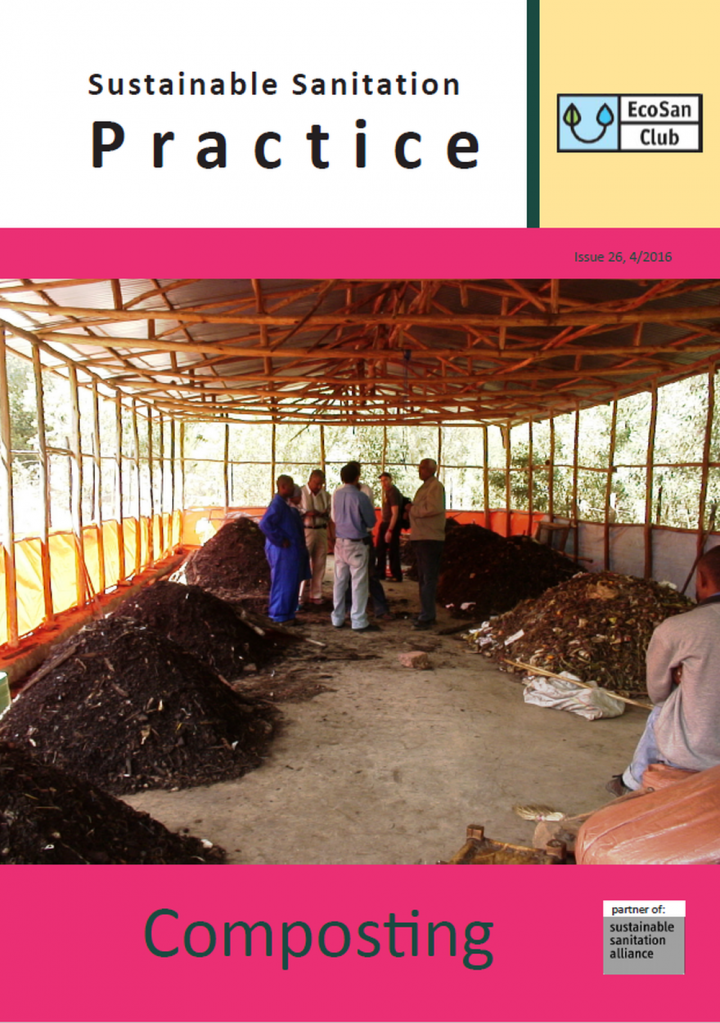Composting - Sustainable Sanitation Practice 26
Langergraber, G., Lechner, M., Müllegger, E. (Eds.) (2016)

Published in: 2016
Pages: 36
Publisher:
EcoSan Club, Vienna, Austria
Author:
Langergraber, G., Lechner, M., Müllegger, E. (Eds.)
Uploaded by:
SuSanA Admin
Partner profile:
BOKU University, Institute of Sanitary Engineering and Water Pollution Control
3964 Views
89 Downloads
Besides sanitation, solid waste management plays an important role in improving the hygienic conditions in cities. There are several strong links between sanitation and solid waste management. In sanitation systems without sewers, urine, faecal matter and faecal sludge have to be collected from the single households such as solid waste. Faecal matter as well as sludge from wastewater treatment plants can be treated by composting to produce fertiliser.
Issue 26 of Sustainable Sanitation Practice (SSP) is thus devoted to „Composting“. The contributions for this issue have been collected with the help of Erwin Binner from the Institute of Waste Management at the University of Natural Resources and Life Sciences Vienna (BOKU). Selected aspects of „Composing“ are described in the following four contributions:
• Erwin Binner describes the fundamentals of composting and the requirements for producing good compost in the
first paper.
• In the second paper, the composting facility for separately collected biowaste of the City of Vienna is described by
Wojciech Rogalski.
• The design of a composting plant in Greece for about 77‘000 inhabitants is shown in the third paper by Christina
Chroni et al.
• The last paper by Christoph Engelhardt and colleagues describes field trials with compost from wastewater
treatment plants in China.
Bibliographic information
Langergraber, G., Lechner, M., Müllegger, E. (Eds.) (2016). Composting - Sustainable Sanitation Practice 26. EcoSan Club, Vienna, Austria
Filter tags
Composting, vermicomposting (solid waste), composting toilets English Faeces or faecal sludge Fertiliser















